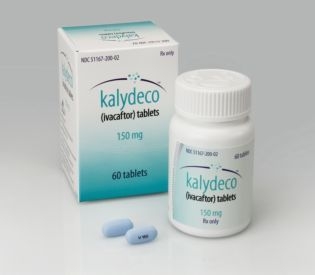
Drug companies will be forced to give the Federal Government full refunds in cases where their medicines do not work.
The Pharmaceutical Benefits Advisory Committee (PBAC) has handed down its recommendations on two controversial drugs, one for cystic fibrosis and the other for a rare blood condition.
Patients have largely welcomed the positive recommendations from the committee.
Under the pay-for-performance model, patients will be taken off expensive medications if they are not seen to be responding to the treatment.
A Health Department spokeswoman says the model, which is a shift away from paying for the medicines regardless of the outcome, has only been used once before.
Under the recommendations, drug companies will not be allowed to charge the Government more than original estimates and must undertake continuous clinical research.
The PBAC will set the health measures that indicate effectiveness.
Drug manufacturer criticises ‘discontinuation criteria’
The decision was a partial win for those lobbying for cystic fibrosis drug Kalydeco to be subsidised by the Government.
The drug helps those with a rare genetic form of the disease, and has been heralded by some as almost a cure.
It is estimated Kalydeco, which costs $300,000 per year for each patient, could help about 200 Australians with the condition.
Vertex, which makes the drug, says it is “deeply disappointed” by the conditions attached to the recommendations.
International general manager Simon Bedson said the proposed changes would halve the number of Australians eligible for treatment.
People who are very sick would be excluded from treatment, and patients showing only mild improvement or a slight improvement in quality of life would be discontinued.
“The conditions of the PBAC recommendation will prevent patients who could benefit from Kalydeco from being able to get it or from remaining on treatment even when demonstrating improvement,” Mr Bedson said.
“Unlike any other country, Australia is seeking to impose strict eligibility and discontinuation criteria to limit the number of patients who could benefit or are showing benefit from this medicine.”
They have urged the Government to reject the PBAC’s recommendation.
The Cystic Fibrosis Foundation was unavailable for comment.
The PBAC also recommended a similar model for Soliris, a treatment for Atypical Haemolytic Uraemic Syndrome.
The condition, which causes abnormal blood clots and mainly targets the kidneys, affects about 60 Australians.
The drug will cost taxpayers up to $200 million over five years.
Source: ABC
